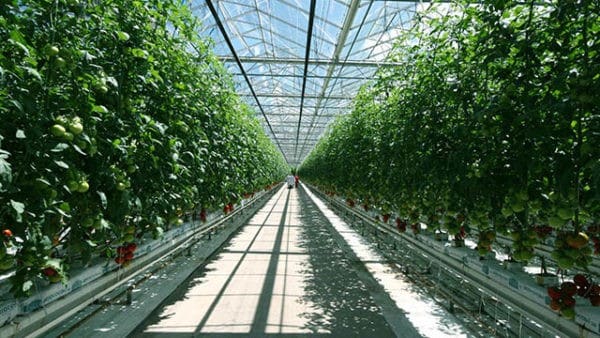Village Farms is “incredibly undervalued”, Beacon says

Village Farms (Village Farms International Stock Quote, Chart, News, Analysts, Financials NASDAQ:VFF) posted strong second-quarter results, showing its performance following the privatization of its Texas greenhouse assets, Beacon Securities analyst Doug Cooper said Aug. 11. Cooper maintained a “buy” rating and $4.50 target price.
Revenue was $59.9-million, including $44.5-million (C$61.4-million) from Canadian and international cannabis, $3.8-million from U.S. cannabis and hemp, $2.5-million from its Netherlands cannabis operations, and $8.6-million in Canadian greenhouse produce.
Consolidated EBITDA was $17.1-million, boosted by a $4.3-million gain in the produce segment. On a pro forma basis, Cooper estimated EBITDA at $13-million, representing an industry-leading margin of about 22%.
“We can make an additional adjustment for the seasonally of its Canadian produce segment and also to reflect the lost production from D2 (~$5 million revenue annualized) as it converts the entire facility to cannabis,” Cooper said. “This has the effect of reducing quarterly pro forma, seasonally-adjusted EBITDA to $11-million. We believe investors can thus be comfortable in annualizing those results to arrive at $235-million (ie $59.9-million x 4 – $5-million ‘lost’ production from D2) and $44-million EBITDA.
“Assuming cannabis pricing holds, investors can use this level of profitability as a base to forecast the impact of the 4 to 5-fold increase in capacity in NL, as well as the impact of the conversion of the remaining half of D2 in British Columbia:
Village Farms said it is currently selling all of its production. The remainder of the D2 conversion is expected to add 40 metric tonnes, or 40 million grams, of output. That implies current production of about 120 metric tonnes, or 120 million grams. Based on Q2 results, annualized revenue per gram is about C$2.00, meaning the added production could generate roughly C$80-million, or US$60-million, in fiscal 2027 revenue.
Such demand could be sold either in Canada (supply-demand dynamics are moving in a positive direction) and/or in the medicinal market in Europe, where more countries are expected to legalize,” Cooper said.
Revenue mix contributed to Village Farms’ best-ever quarterly profitability, with international sales reaching C$16.6-million, or 27% of Canadian cannabis sales, up from $2.1-million, or 3.5%, a year earlier.
Following the privatization of some Texas-based produce assets, the company ended June with $65-million in cash and a net cash position of $26-million, its strongest balance sheet to date. Beacon Securities expects this to grow in the coming quarters and years through significant free cash flow generation.
“Perhaps most importantly, management noted that such a quarter is repeatable over the balance of the year given its continued market share strength in Canada, its growing profile internationally and the strength of its NL asset that had a full quarter of contribution,” Cooper said.
Cooper said that Village Farms should do $50.4-million in Adjusted EBITDA on revenue of $207.1-million in fiscal 2025. He thinks those numbers will improve to $65.7-million on revenue of $249.5-million in fiscal 2026.
“As its recent corporate transformation, the VFF story is much leaner and, importantly, more predictable,” Cooper said. “It has a strong growth profile with improving profitability and is backstopped by a net-cash balance sheet position. In our opinion, it is a unicorn that is not only incredibly undervalued on its current base of business but also offers material optionality for US federal reform.
The company’s second-quarter 2025 results reflect the May 30 closing of its previously announced transaction to privatize certain produce segment assets and operations through a new entity backed by private investment firms. In the deal, Village Farms received $40-million in cash, subject to working capital adjustments, and common units representing a 37.9 per cent equity stake in Vanguard Food. Operations that were privatized are now classified as discontinued operations, and prior-period results have been restated accordingly.
“Our second quarter results demonstrate the improving earnings potential of Village Farms and our continued success in scaling a profitable global cannabis enterprise,” Village Farms President and CEO Michael DeGiglio said. “Second quarter performance reflected record levels of profitability since we expanded into cannabis in 2017, and eclipsed several records set during our nearly 20-year history as a publicly traded company. Our teams are excelling during a period of rapid change for the organization, and energized by the many pockets of upside opportunity that we see across virtually every aspect of our business.”
Disclosure: The family of Nick Waddell owns shares of Village Farms
-30-
Nick Waddell
Founder of Cantech Letter
Cantech Letter founder and editor Nick Waddell has lived in five Canadian provinces and is proud of his country's often overlooked contributions to the world of science and technology. Waddell takes a regular shift on the Canadian media circuit, making appearances on CTV, CBC and BNN, and contributing to publications such as Canadian Business and Business Insider.

